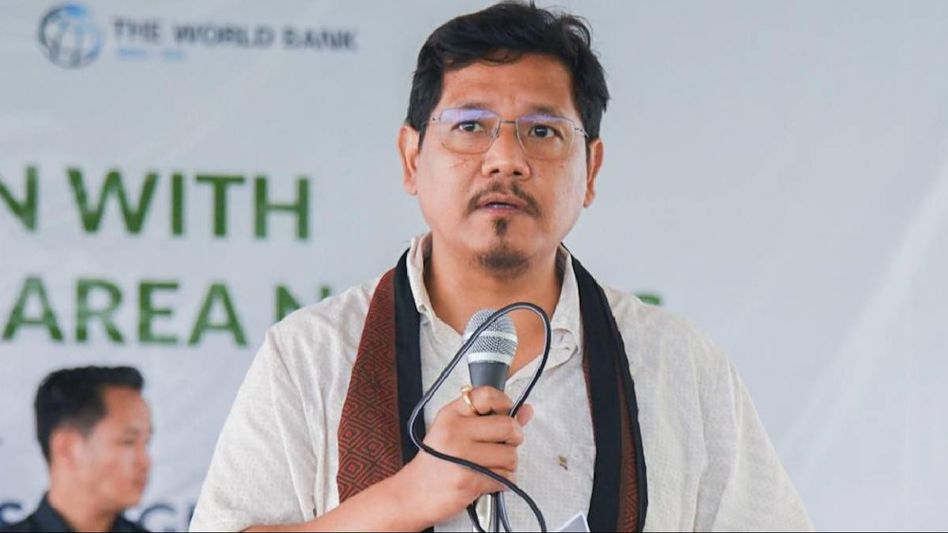Meghalaya CM Conrad Sangma visits Garo Hills; pledges stronger conservation efforts
The Chief Minister met with the Nokmas (village chiefs) from the Ganol catchment area, which is crucial as the Ganol River, originating from Nokrek, is a primary water source for Tura and surrounding regions.
 Meghalaya CM Conrad Sangma visits Garo Hills; pledges stronger conservation efforts
Meghalaya CM Conrad Sangma visits Garo Hills; pledges stronger conservation effortsTo understand and address the conservation challenges in Meghalaya’s Garo Hills, Chief Minister Conrad K. Sangma visited several villages near the Nokrek Biosphere Reserve on May 23. The visit aimed to gain a firsthand impression of the hurdles faced in implementing conservation initiatives.
Accompanied by Principal Secretary Sampath Kumar and a delegation from the Forest and Environment Department, Meghalaya Basin Development Authority (MBDA), and Council of Nokmas, Chief Minister Sangma toured the villages of Sakalgre, Baladinggre, and Sakal Aduma. He spent nearly six hours engaging with local leaders and communities.
The Chief Minister met with the Nokmas (village chiefs) from the Ganol catchment area, which is crucial as the Ganol River, originating from Nokrek, is a primary water source for Tura and surrounding regions. At Sakal Aduma, a village perched at about 1,400 meters above sea level and renowned for the rare Citrus Indica or Memang Narang, he discussed the ongoing conservation efforts and the associated challenges.
During an interaction with the Nokmas, Chief Minister Sangma highlighted the government’s initiatives to protect and rejuvenate the catchment areas. He outlined the Green Meghalaya initiative and the Payment for Ecosystem Services (PES) program, which compensates communities Rs. 15,000 per hectare for their conservation efforts.
“Our approach involves local communities in both development and conservation, particularly in eco-sensitive regions. Policies are developed in consultation with the communities to ensure mutual benefit,” stated Sangma.
He addressed the prevalent issue of jhum cultivation, stressing the need for sustainable livelihoods. “We have initiated programs to encourage green initiatives and sustainable livelihoods. The Forest, Agriculture, Horticulture, and Soil and Water Conservation Departments are collaboratively working to protect our natural resources,” he said.
On promoting tourism, the Chief Minister called for responsible tourism practices to maintain the ecological balance. “We have implemented various interventions to enhance tourism in Nokrek over the past 2-3 years. However, it is imperative to maintain ecological sensitivity, keep the area clean, and prevent littering to preserve its beauty,” he said.
Sangma also acknowledged the problem of dwindling forest cover due to jhum cultivation. He assured that the government is documenting these concerns and working with local communities on afforestation and conservation efforts. He urged the Nokmas for their cooperation in protecting the forest cover and supporting the government’s efforts to safeguard the Ganol catchment area.
Copyright©2025 Living Media India Limited. For reprint rights: Syndications Today









